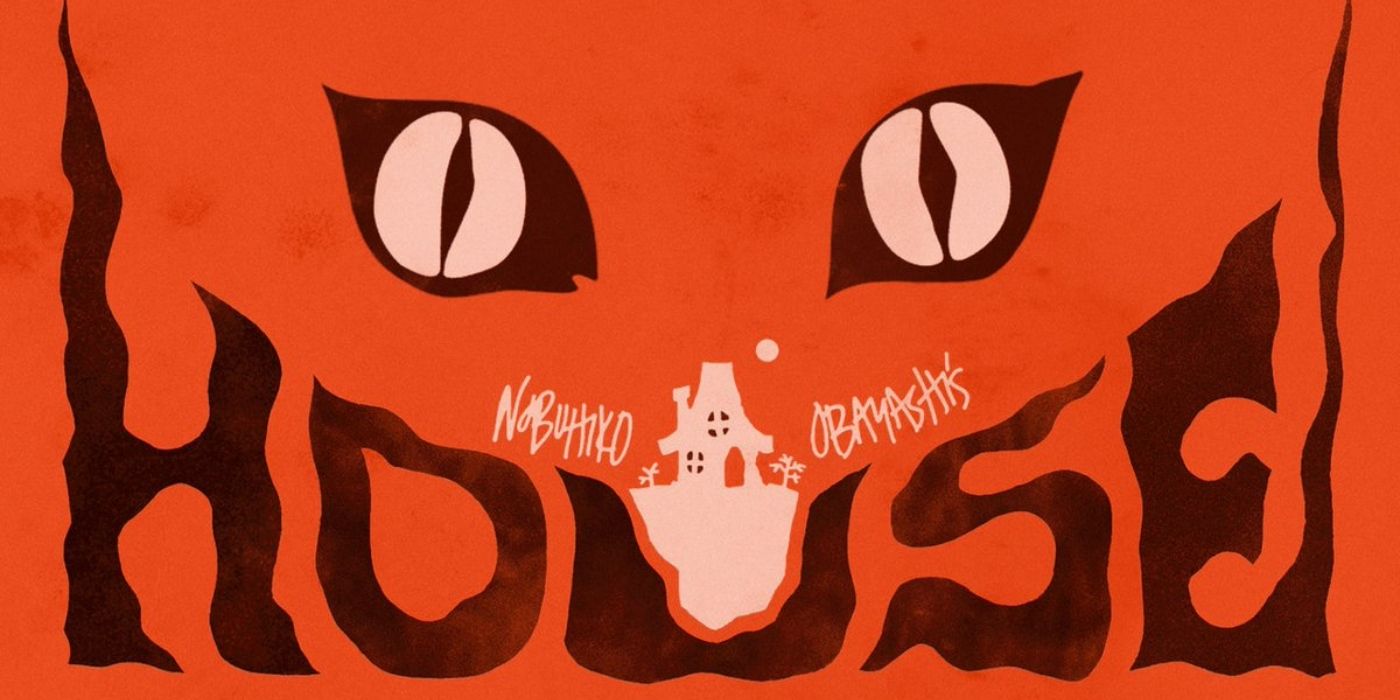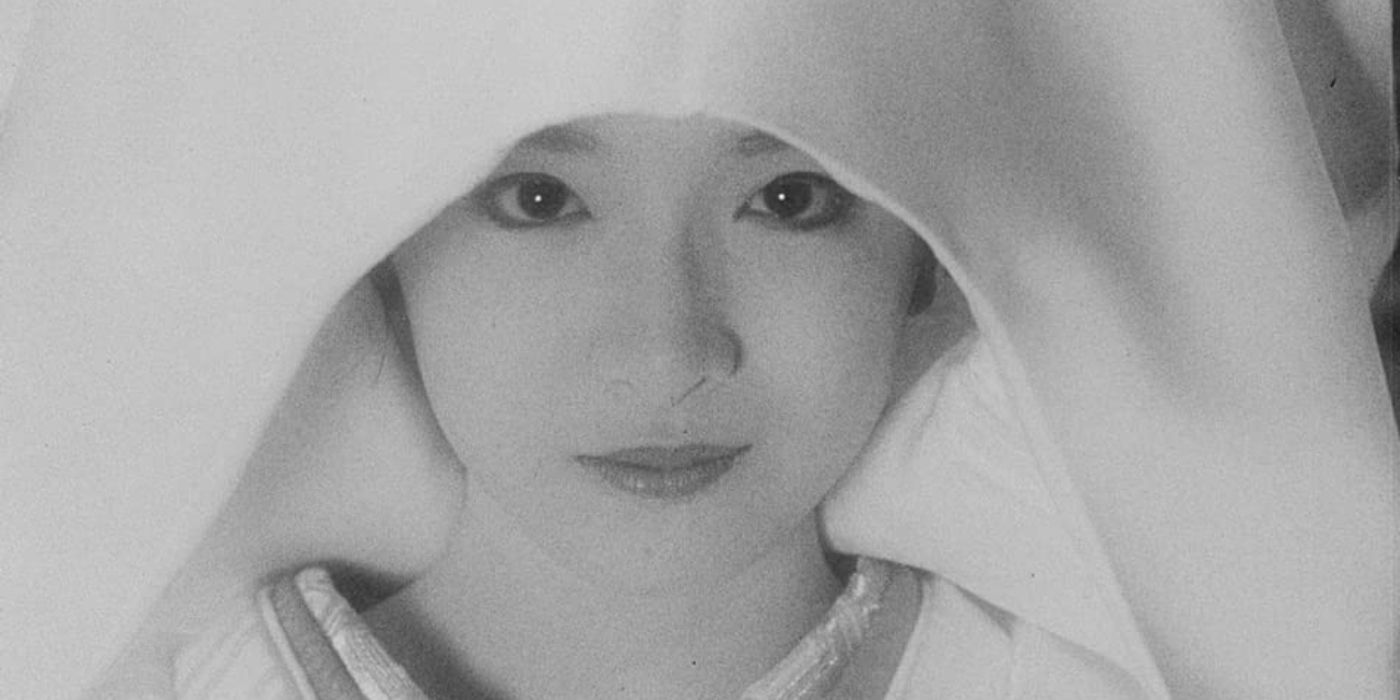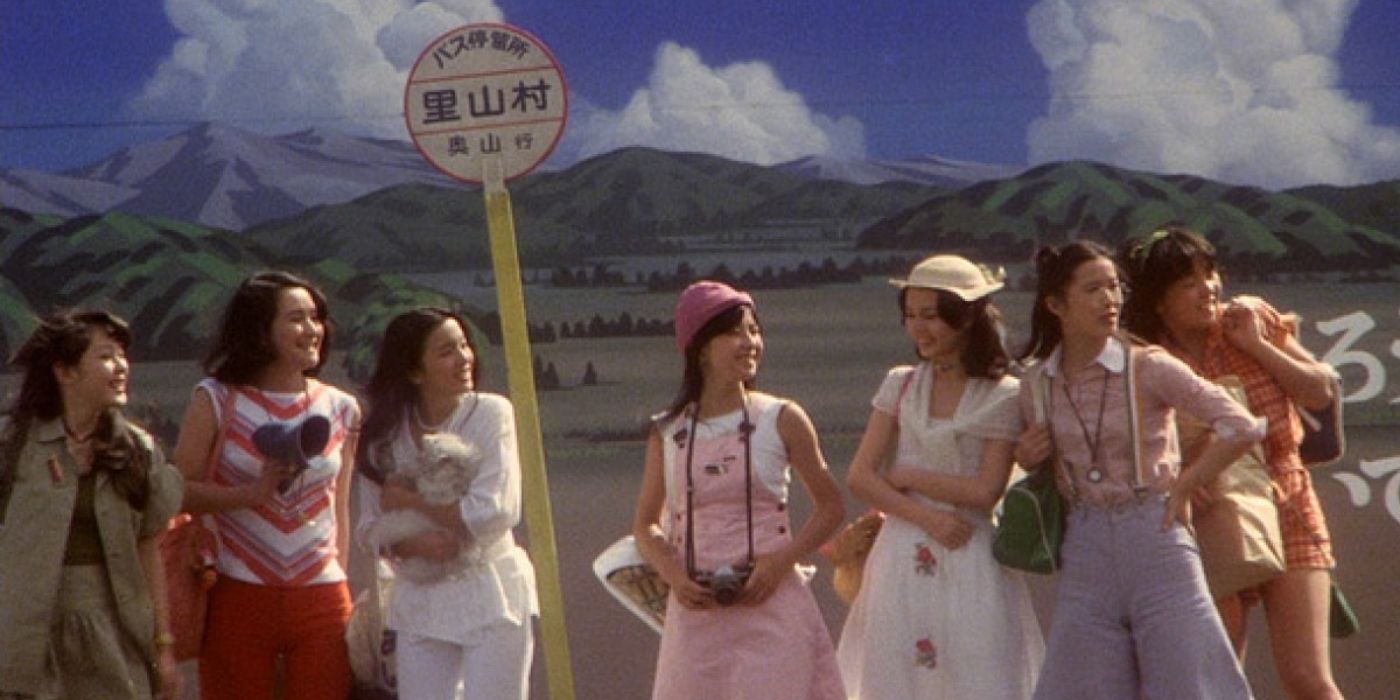In 1975, Jaws ushered in the age of the summer blockbuster. It proved the strength that a good horror flick has while taking the genre in a bold new direction. So before Star Wars came along and reshaped the market once again, every studio was looking for its own Jaws. But who could have guessed that Toho's attempt at riding that wave would lead to a film like House?
During the 1970s, the Japanese film scene was in a state of decline. Even Toho, the studio that created Godzilla, was struggling. The rise of television had led to the idea that theaters were a thing of the past. So who better to usher in the return of cinema than someone who directed commercials? Enter Nobuhiko Obayashi, a filmmaker who mainly worked in the ad industry. This made him the odd man out among his peers, who saw ad work as beneath them. But for Obayashi, it gave him a chance to learn as much as he could about working with big budgets. And it didn't make him any less creative. The avant-garde approach that would define his career was present even then, and for Toho, it was the deciding factor. The studio, bored with its current slate of films, wanted to make something that was "like" Jaws, but incomprehensible.
Obayashi was the clear choice and, helpfully, he was also the only director that wanted to take on the project. He wrote a script with collaborator Chiho Katsura (the two had previously penned Hanagatami, which became a film in 2017). It was titled House, and Toho couldn't say no to it. But there was one roadblock: Obayashi couldn't direct the film himself, because he didn't work for the studio. Still, Toho allowed him to begin promoting the film, even before production had officially started. Meanwhile, they began the search for a director. But as time ticked by, Obayashi was still the only one willing to risk his career on it. The studio acquiesced and gave him official permission to direct. Thus, production began on what would become one of the strangest films ever made.
On paper, the concept is pretty simple: a group of girls visits a malevolent house. Each girl's name indicates a dominant trait: "Gorgeous" is beautiful, "Kung Fu" is athletic, "Prof" is intelligent, etc. The ways the house would "attack" its visitors are the most interesting part, but they didn't come from the director. Rather, his young daughter (who ended up with a story credit) drew them from her own ideas. Her creations are a large part of what makes the film equal parts beautiful and bizarre. The film's monsters range from a carnivorous piano to one girl's own reflection, irrational fears fully realized.
Scares that a child thought up fit in nicely with the film's coming-of-age themes. Gorgeous, the lead character, decides to flee to her aunt's house after finding out her father has remarried. Even after eight years, she still isn't able to cope with her mother's death. The desire to avoid change leads her to contact someone she hasn't seen for many years. To recapture a time long gone, when things were simpler and her mother was still alive. This leads to another major theme of the film: loss and how difficult it is to move on from. Multiple characters express this; the aunt herself still waits for her fiancée, who died in World War II, to return home. Obayashi lost many of his childhood friends in the bombing of Hiroshima, so this plotline was personal to him.
A common interpretation of House is that its horror elements are there to communicate the horrors of war. By 1977, the current generation was only somewhat aware of such things. War is not something that's easy to wrap your head around if you haven't experienced it. Obayashi has said that House "expressed the atomic bomb for children using extremely childish imagery that they [could] understand." But this gets somewhat meta. One could say the girls in the film represent that audience. Their lives are full of idyllic bliss, but a ghost lurks in every frame. It's an unspoken terror that a generation blessed with peace can never fully appreciate the consequences of. And it is always threatening to return. These parallels makes House's subjects easy to empathize with. Even when a character remarks that a mushroom cloud "looks like cotton candy", it's more sad than upsetting.
The film has many poignant social themes, but those aren't what made it a cult classic. Countless reviews compare it to an acid trip, citing its surreal visuals and editing. There's no way to explain these moments that would do them justice. But what can be explained is what went on behind the scenes to make House the singular experience it is. First off, the cast and crew had a strong familial bond. Many of the main cast members had worked with Obayashi before on commercials, as had the film's composer. This gives the film an almost homemade quality. Obayashi didn't use a storyboard, and he often improvised on set. But he also went through just about every trick in the book when it came to special effects. This is the area of the film that draws the most attention from fans, and for good reason.
The special effects in House are incredible. They appear amateurish at times, but that only adds to the film's cartoonish zaniness. And that was intentional on Obayashi's part; he wanted them to look like something a child created. What he might not have predicted, however, is that he ended up creating a psychedelic experience like no other. In later years, he made several great films, including a trilogy of anti-war dramas, but none topped House's success. It's a one-of-a-kind movie.
And there's so much more to it than what a single article could cover. It's full of surprisingly memorable quotes ("You're so cool, Kung Fu!") and characters. It's distinctly feminist, it has an underappreciated soundtrack, it satirizes the horror genre: there's a lot to talk about. But it's better to see it than to talk about it. Both a ghost story with surprising emotional weight and a mind-melting, hallucinogenic trip through the unknown, House is truly magical.



